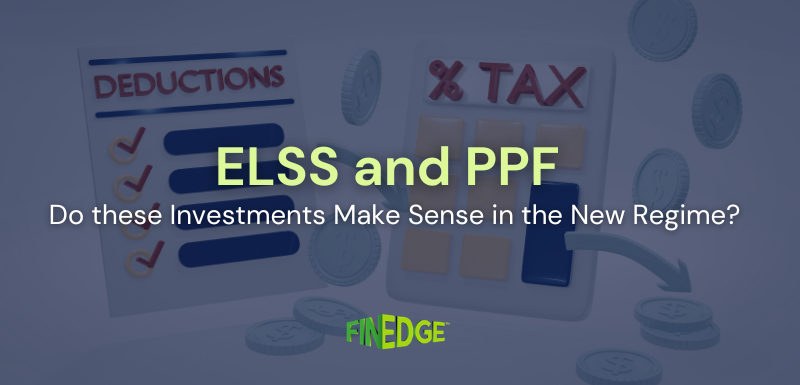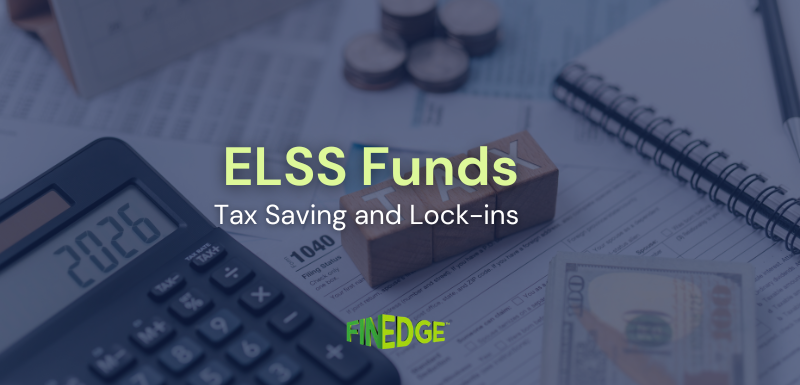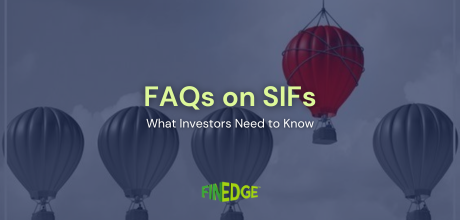Investing Insights
Should You Continue Investing in ELSS and PPF in the New Tax Regime?
With Section 80C deductions removed under the new tax regime, ELSS and PPF must now stand on their investment merit. The decision is no longer about tax savings alone, it is about suitability, liquidity, and long-term goals.
When Is the Right Time to Start Investing for Your Goals?
When is the right time to start investing for your goals? Many believe the answer depends on market stability, income comfort, or economic certainty. In reality, the right time is when your goals are clear and you are prepared to act with discipline. Wealth is rarely created by waiting. It is built through consistent participation guided by a defined investment process.
How to Adjust Your Investments After a Salary Raise
A salary hike is more than a pay revision, it is an opportunity to realign your financial direction. The smartest response to higher income is not immediate lifestyle expansion, but a structured review of your goals, debt position, and investment contributions. When handled thoughtfully, each raise can accelerate wealth creation rather than simply increase monthly expenses.
Why Mid-Cap Allocation Needs More Discipline Than Large Cap
Mid-cap allocation demands more discipline than large cap because it comes with sharper market swings. While mid caps offer higher long-term growth potential, they also test investor patience during downturns. The key is not choosing one over the other, but understanding how each behaves across market cycles.
Why Return-Focused Investing Fails in Volatile Markets
Return-focused investing fails in volatile markets because it relies on recent performance as the primary decision-making anchor. When markets fluctuate sharply, investors who chase returns tend to react emotionally switching funds, exiting prematurely, or increasing risk at the wrong time. Over time, these reactions interrupt compounding and damage long-term wealth creation.
What Is NAV in Mutual Fund? A Simple Guide to Understanding Net Asset Value
If you are trying to understand what NAV in mutual fund investing means, the answer is simple: NAV, or net asset value, represents the per-unit value of a mutual fund’s portfolio after deducting its liabilities. It tells you how much each unit you hold is worth at the end of a trading day. It does not indicate whether a fund is cheap, expensive, or better than another, it is simply a daily valuation measure.
ELSS Mutual Funds: A Simple Way to Save Tax and Build Long-Term Wealth
ELSS mutual funds help you save tax under Section 80C while participating in equity markets for long-term growth. With the shortest lock-in among 80C options and the flexibility of SIP investing, they can align tax efficiency with disciplined wealth creation. Used correctly, ELSS is not just a tax-saving tool, but a long-term investment strategy.
GIFT Nifty vs Nifty 50: Understanding the Key Differences
Many investors often hear terms like GIFT Nifty and Nifty 50 used interchangeably. However, they are not the same. While Nifty 50 represents India’s top 50 companies and reflects the health of the stock market, GIFT Nifty is a futures contract based on that index, designed to provide extended trading access especially for global participants. Understanding this distinction is essential before interpreting market signals.
Are NFOs Cheaper at ₹10 NAV? Understanding the Mutual Fund Myth
Many investors believe that New Fund Offers (NFOs) are cheaper or promise higher returns simply because their Net Asset Value (NAV) starts at ₹10. This assumption, however, comes from confusing mutual funds with stock IPOs. Let’s understand why NAV does not determine mutual fund returns.
GIFT City Explained: What It Means for NRIs, Foreign Investors, and Indian Markets
GIFT City is India’s initiative to build a globally competitive financial hub within the country. Operating under an international regulatory framework, it allows global investors to access Indian markets while remaining under Indian oversight. This blog explains what GIFT City is and what it means for NRIs, foreign investors, and resident Indians.
The Role of Hybrid Long-Short SIFs in a Well-Structured Portfolio
As portfolios mature and financial goals move closer, the nature of investing gradually shifts, from maximising growth to preserving outcomes. Hybrid long-short SIFs are designed to support this transition by adding stability and balance at specific stages of the investment journey.
Specialised Investment Funds (SIFs): Key FAQs Investors Should Understand
Specialised Investment Funds (SIFs) are the newest entrants in India’s investing space. With all the recent buzz, many investors are curious about what they mean for their portfolios. Below are answers to some of the most common and important questions around SIFs.
Latest Posts
Should You Continue Investing in ELSS and PPF in the New Tax Regime?
Mar 02, 2026
Does High Income Make You Wealthy?
Feb 27, 2026
Retirement Planning in India: A Practical Framework for Long-Term Security
Feb 25, 2026
When Is the Right Time to Start Investing for Your Goals?
Feb 23, 2026
How to Adjust Your Investments After a Salary Raise
Feb 20, 2026
The Importance of your Child’s Education Goal
Feb 28, 2024
Why Retirement Planning is Important
Nov 08, 2023
Oct 31, 2023
Investing Behaviour and the investing roller coaster
Oct 12, 2023
Investing Stories

.png)


.png)


.png)
.png)
.png)
_(33).png)




.jpg)

.jpg)
_(1)1.jpg)
.jpg)
.jpg)
.jpg)